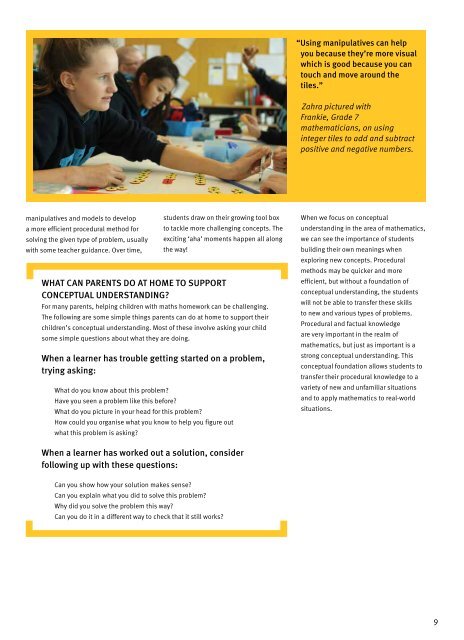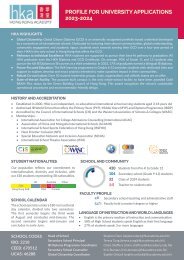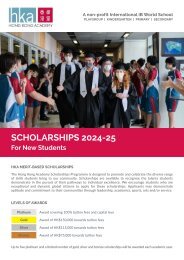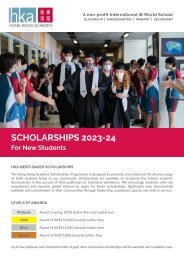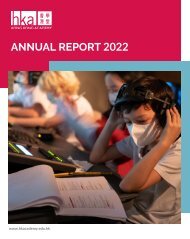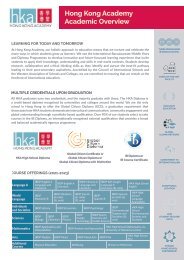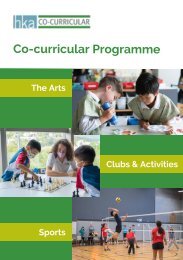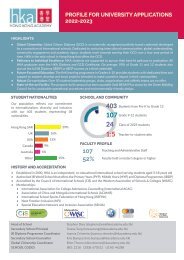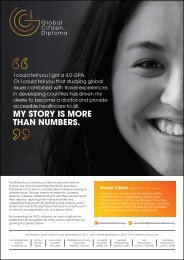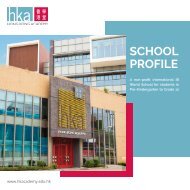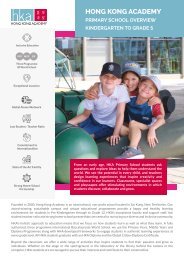hkaVOICES - Spring 2018
A bi-annual magazine for the Hong Kong Academy community.
A bi-annual magazine for the Hong Kong Academy community.
Create successful ePaper yourself
Turn your PDF publications into a flip-book with our unique Google optimized e-Paper software.
“Using manipulatives can help<br />
you because they’re more visual<br />
which is good because you can<br />
touch and move around the<br />
tiles.”<br />
Zahra pictured with<br />
Frankie, Grade 7<br />
mathematicians, on using<br />
integer tiles to add and subtract<br />
positive and negative numbers.<br />
manipulatives and models to develop<br />
a more efficient procedural method for<br />
solving the given type of problem, usually<br />
with some teacher guidance. Over time,<br />
students draw on their growing tool box<br />
to tackle more challenging concepts. The<br />
exciting ‘aha’ moments happen all along<br />
the way!<br />
What can parents do at home to support<br />
conceptual understanding?<br />
For many parents, helping children with maths homework can be challenging.<br />
The following are some simple things parents can do at home to support their<br />
children’s conceptual understanding. Most of these involve asking your child<br />
some simple questions about what they are doing.<br />
When a learner has trouble getting started on a problem,<br />
trying asking:<br />
What do you know about this problem?<br />
Have you seen a problem like this before?<br />
What do you picture in your head for this problem?<br />
How could you organise what you know to help you figure out<br />
what this problem is asking?<br />
When we focus on conceptual<br />
understanding in the area of mathematics,<br />
we can see the importance of students<br />
building their own meanings when<br />
exploring new concepts. Procedural<br />
methods may be quicker and more<br />
efficient, but without a foundation of<br />
conceptual understanding, the students<br />
will not be able to transfer these skills<br />
to new and various types of problems.<br />
Procedural and factual knowledge<br />
are very important in the realm of<br />
mathematics, but just as important is a<br />
strong conceptual understanding. This<br />
conceptual foundation allows students to<br />
transfer their procedural knowledge to a<br />
variety of new and unfamiliar situations<br />
and to apply mathematics to real-world<br />
situations.<br />
When a learner has worked out a solution, consider<br />
following up with these questions:<br />
Can you show how your solution makes sense?<br />
Can you explain what you did to solve this problem?<br />
Why did you solve the problem this way?<br />
Can you do it in a different way to check that it still works?<br />
9


